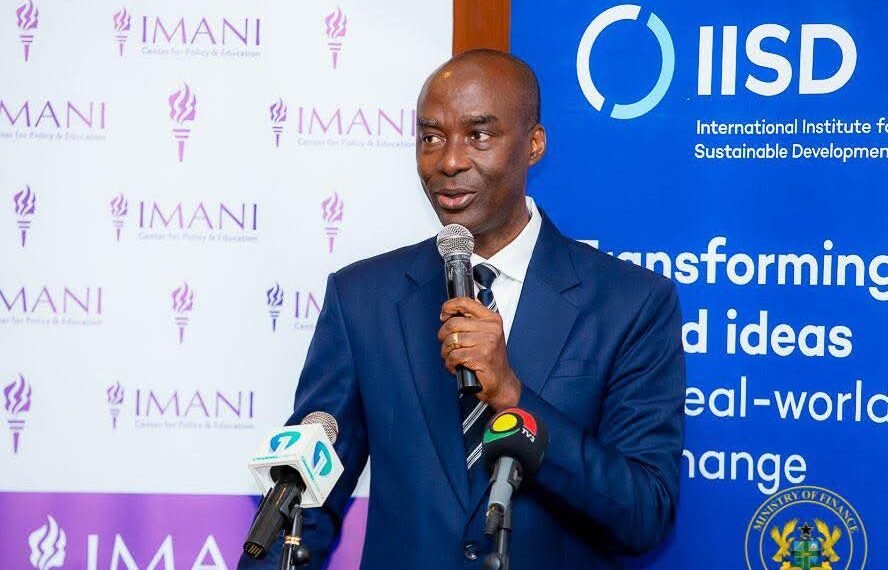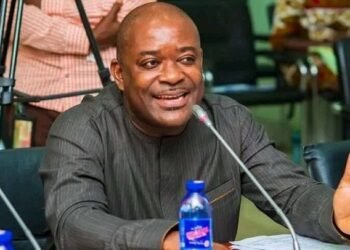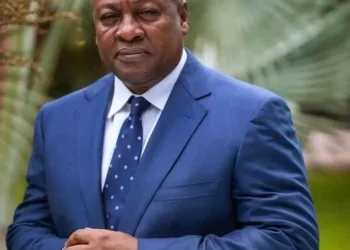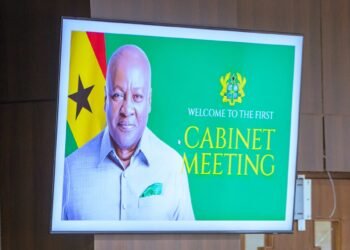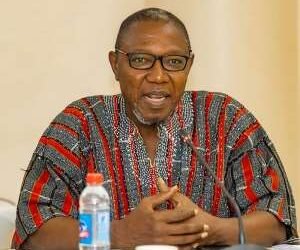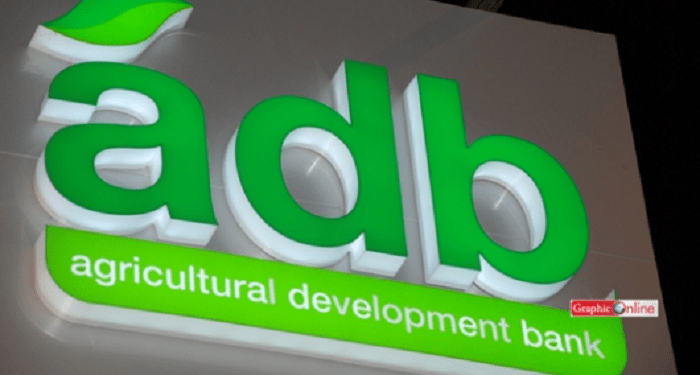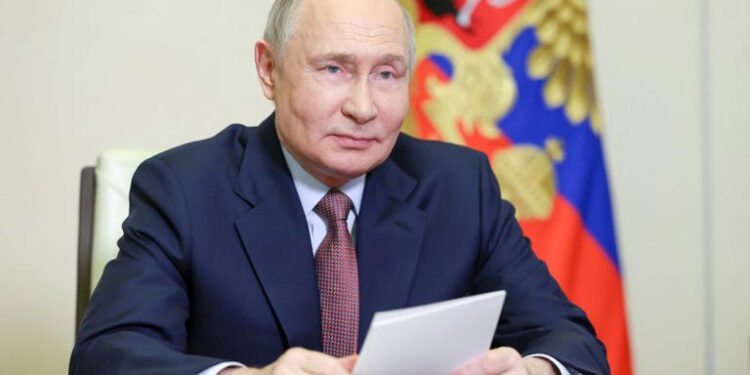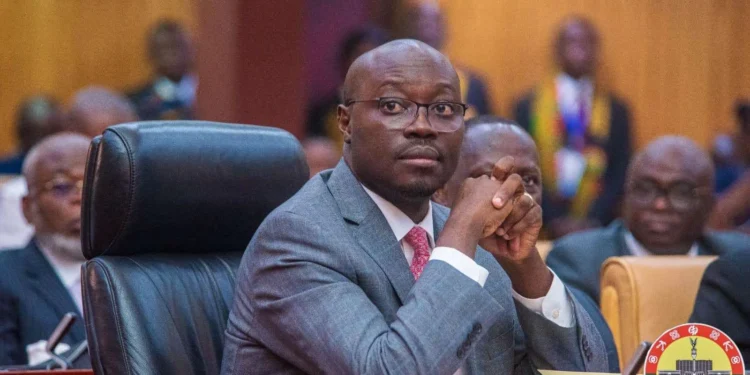The Chief Director of the Ministry of Finance, Dr Patrick Nomo, has stressed that the success of Ghana’s new Fiscal Council will depend on independence, accountability, adequate resources, and the collective responsibility of all state actors.
Speaking at a policy roundtable organized by the International Institute for Sustainable Development (IISD) and the IMANI Center for Policy and Education at the Tang Palace Hotel in Accra, Dr Nomo outlined the role of the council and the factors that could shape its effectiveness.
The roundtable, which brought together representatives of government, Parliament, development partners, civil society, and researchers, focused on the design and implementation of the Fiscal Council. The body is intended to enhance transparency and fiscal discipline by monitoring the application of Ghana’s fiscal rules.
Dr Nomo explained that Ghana’s fiscal responsibility law already provides clear direction on when fiscal rules may be suspended and the timeframes for reinstating them. He emphasized that the Fiscal Council cannot enforce compliance but can only advise.
“The law, again, provides for when the fiscal rules can be suspended and how soon we should come back to the fiscal rules after they’ve been suspended. The law has been very clear on that, but the fiscal council cannot insist on the fiscal rules.
“They can only report, they can only make a comment, they can only make submissions to Parliament, they can only make submissions to the executive. But the law provides for what needs to be done.”
Dr Patrick Nomo, Chief Director, Ministry of Finance
This, he noted, raises a broader issue of accountability. “What happens to people who flout our laws? What happens to people who flout our laws? That’s a question,” Dr Nomo remarked, insisting that without consequences, the council’s warnings risk being disregarded.

Upholding Integrity
On the matter of independence, Dr Nomo reflected on his background in auditing to explain the personal responsibility of council members in maintaining integrity.
“In internal audit or in audit, one of the key things we find ourselves in is independence. But you realise that you are an internal auditor, unlike the external auditor, you are appointed by management, and you work on management, you do reports on management, maybe to a board.
“The issue about the independence sits with the person who has been appointed and how diligently he wants to execute his functions as an appointed officer”.
Dr Patrick Nomo, Chief Director, Ministry of Finance
He added that members’ independence will depend not only on their qualifications but also on their willingness to act with integrity, even when difficult.
“If somebody wants to be on the council for four years, when there’s an issue one disagrees on, and instead of the person to resign, you don’t resign, you stay there and continue because of the benefits of being on the council.
“But if you are independently minded, for this decision and for this practice, I’m not able to continue on this council. I’m terminating my resignation. That helps the independence of the council.”
Dr Patrick Nomo, Chief Director, Ministry of Finance
Adequate Resources
Beyond personal integrity, he pointed out that institutional independence requires resources. A council that lacks adequate support, he warned, risks compromising its autonomy.
“If adequate resources are not provided, and you have to chase other institutions for resources, in that process, you compromise your independence. So you want to make sure that the environment in which the fiscal council operates enables it to have adequate, not necessarily sufficient, but adequate resources so that they can push forward their independence.”
Dr Patrick Nomo, Chief Director, Ministry of Finance

Turning to the question of what might undermine the council’s work, Dr Nomo was clear: the failure of institutions to respect rules.
“If all of us, including the parliaments, the executives, the Ministry of Finance, and all the people who are supposed to be respecting rules, do not treat their rules well, the council will continue to produce their reports, they will continue to hold press conferences, they will continue to advise, and if this advice is not taken, they don’t have prosecutorial powers.
“So they can’t take anybody to court. They can only speak. But if all of us, as the government, do not hold the people who are primarily responsible for doing the things that the fiscal council recommends, the fiscal council will talk, and we won’t have the appropriate responses.”
Dr Patrick Nomo, Chief Director, Ministry of Finance
Parliament’s Central Role
Dr Nomo highlighted Parliament’s central role in fiscal accountability. “Parliament has a responsibility. Parliament is meant to approve the budget. A lot of us forget that it’s not just a walkthrough. We go through a process for Parliament to approve the budget, he remarked.
He added, “So in these discussions, we should find out how we are empowering Parliament to be able to scrutinise the budget process more thoroughly before they approve it”.
He also called on citizens and institutions to engage with government reports such as the mid-year budget review, which, though it did not seek a supplementary budget this year, still merited close examination.
“We need to interrogate that process. If we have a fiscal council, what it would help us do is to highlight some of the things that we should be looking at, some of the things that are of concern, the trends in terms of our debt, our revenue, our expenditure, and so on.
“And then all of us have a role to make sure. I don’t think we should expect that once the fiscal council comes into play, then we can all sit back and look at it and expect that they do our part.”
Dr Patrick Nomo, Chief Director, Ministry of Finance
Fiscal Council’s Impact on the Market
When asked how the council’s assessments might affect market confidence, Dr Nomo pointed to recent global examples, including the fall of former UK Prime Minister Liz Truss after markets reacted to fiscal mismanagement. He emphasized that markets remain a powerful check on fiscal indiscipline.
“The market is very sensitive because of the expectations and the numbers that we need to monitor. So if you take a wrong decision, you don’t need to wait for anybody to raise that. The market will read into what you have done and immediately you feel the effect.”
Dr Patrick Nomo, Chief Director, Ministry of Finance
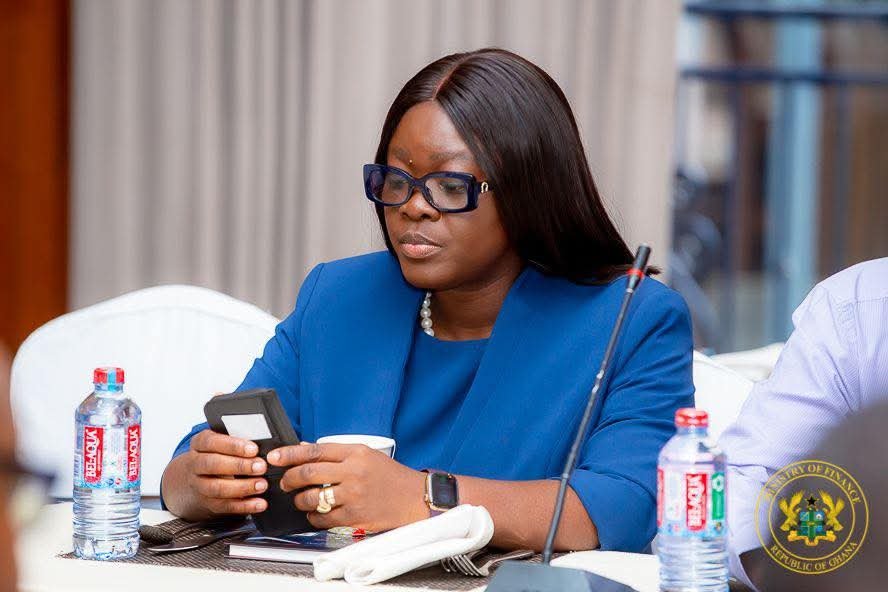
Drawing on Ghana’s experience, he recalled how market pressures had forced policy adjustments and even led the country into IMF programs.
“Almost all the times, or recently, I’m not too old, so I can’t say all the times, but some of the recent times that we went to the IMF, there were signals from internal sources as to what is happening, how the heat we are facing. But as soon as the market starts responding, you have no option but to do the right thing.”
Dr Patrick Nomo, Chief Director, Ministry of Finance
For Dr Nomo, the establishment of the Fiscal Council is a crucial opportunity to strengthen fiscal transparency and accountability. But he reiterated that the institution’s effectiveness will not rest on its reports alone.
Success, he argued, requires respect for the law, the independence of its members, adequate resourcing, and, above all, collective responsibility from Parliament, the executive, civil society, and the public.
READ ALSO: IMF-Ghana Rep Urges Stricter Fiscal Rule Enforcement, Pledges Technical Support

